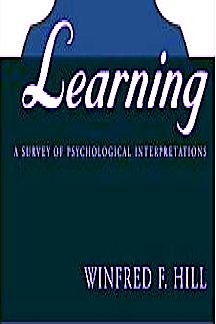Learning: A survey of psychological interpretations
No Synopsis Available.
Format:Paperback
Language:English
ISBN:0690008813
ISBN13:9780690008814
Release Date:January 1977
Publisher:Thomas Y. Crowell
Length:291 Pages
Weight:0.90 lbs.
Customer Reviews
1 rating
Excellent Introduction
Published by Thriftbooks.com User , 20 years ago
This is a very dense, but small, book that presents all the major learning theories in a clear and well organized manner. The chapters are divided by theory and within each chapter, the author presents a chronological discussion of the evolution of the theory with examples of the field's pioneers and prominent scientist and also the implications and usefulness of these theories in a variety of settings. This is a truly comprehensive discussion of all learning theories to date: Pavlov, Watson, Piaget and Skinner to name but a few as well as chapters on computers and the effect they've had on learning theories and psychology. I found the final four chapters extremely useful. Chapter 12 presents the more recent developments in the field of learning theories and cognitive interpretation. Chapter 13 discusses motivation and its effect on learning and the drive to develop/learn. Chapter 14 is an extremely interesting presentation of the effects of heredity and evolution on learning. Finally, chapter 15 - Learning Theory Past, Present, and Future - is a short and very well written summary of the field in general discussing the issues upon which the learning theories divide and what an ideal theory should look like (should it ever be developed) and finally it concludes with a summary of the value of learning theories. This is not easy reading nor is it a casual introduction to learning theories. It is a text book written for students in psychology and learning. Given the topic and the intended audience, there are some instances where the author's style may become difficult to follow, but it remains better written than a number of other textbooks I've come across.






